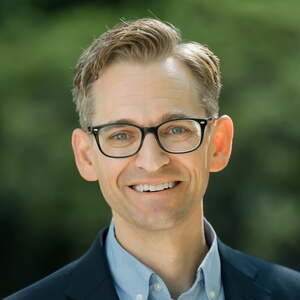With pomp and pageantry, Biola University formally installed Barry H. Corey as the eighth president in its 100-year history on Nov. 2.
And with reverence and humility, Corey promised to lead with a steadfast commitment to the Word of God and a desire to see God glorified.
“Let the record show that today’s pageantry is not about me,” Corey said in an address that capped off an elaborate inaugural convocation. “This is a moment for all of us, one more time, to give God glory for who He is and for what He has done through Biola University for 100 years. We stand in expectation for what is still to come.”
The inauguration, witnessed by more than 3,500 people in Chase Gymnasium and in satellite locations on campus, was the highlight of a weekend of festivities that also included an elegant inaugural dinner, a community luncheon and Biolafest, a homecoming revival.
The inauguration marked a significant moment in the history of the University, which is in the midst of celebrating its centennial year. The most recent inauguration had come 25 years earlier, meaning many in the Biola community had never experienced such an event.
Eight tolls of a historic bell from Biola’s original downtown Los Angeles campus — symbolic of each of the University’s eight presidents — heralded the ceremony’s start.
As the voices of the Biola University Chorale swelled, a procession of brightly robed delegates that included presidents, provosts and officials from 25 colleges and universities marched solemnly into the gymnasium.
Following a prayer, Scripture reading and hymn, a series of speakers issued presidential charges and words of encouragement to guide Corey during his time in office.
President Emeritus Clyde Cook, who retired in June after 25 years of leadership, presented Corey with the first of four presidential symbols of office: a Bible, symbolizing Biola’s commitment to the Word of God.
Also presented were a cross, symbolizing a commitment to the Great Commission; a replica of the cornerstone at Biola’s original downtown Los Angeles location, symbolizing a commitment to Biola’s founding mission; and a medallion, symbolizing a commitment to academic excellence.
In a 52-minute address, Corey emphasized the need for all members of the Biola community to believe God’s Word with conviction and courage — not just knowing and affirming the Bible as truth, but being transformed by it.
“It’s not merely grasping God,” he said. “It’s being grasped by God — the mind and the heart alike, with conviction and with courage.”
Making frequent allusions to Biola’s founders, Corey made clear his resolve to stay rooted in the University’s founding mission while “envisioning stronger and ever more courageous ways to fulfill our vision.”
In coming years, he said, the University will seek to strengthen its academic programs, broaden its reach, build upon its commitment to spiritual transformation and provide students with greater cross-cultural experiences.
“Our vision is to be a global center for Christian thought and spiritual renewal,” Corey said. “And the goal of this vision is not our own prestige or renown or to bask in our gains. The goal of our vision is to see the glory of God.”
 Biola University
Biola University
.jpg)

